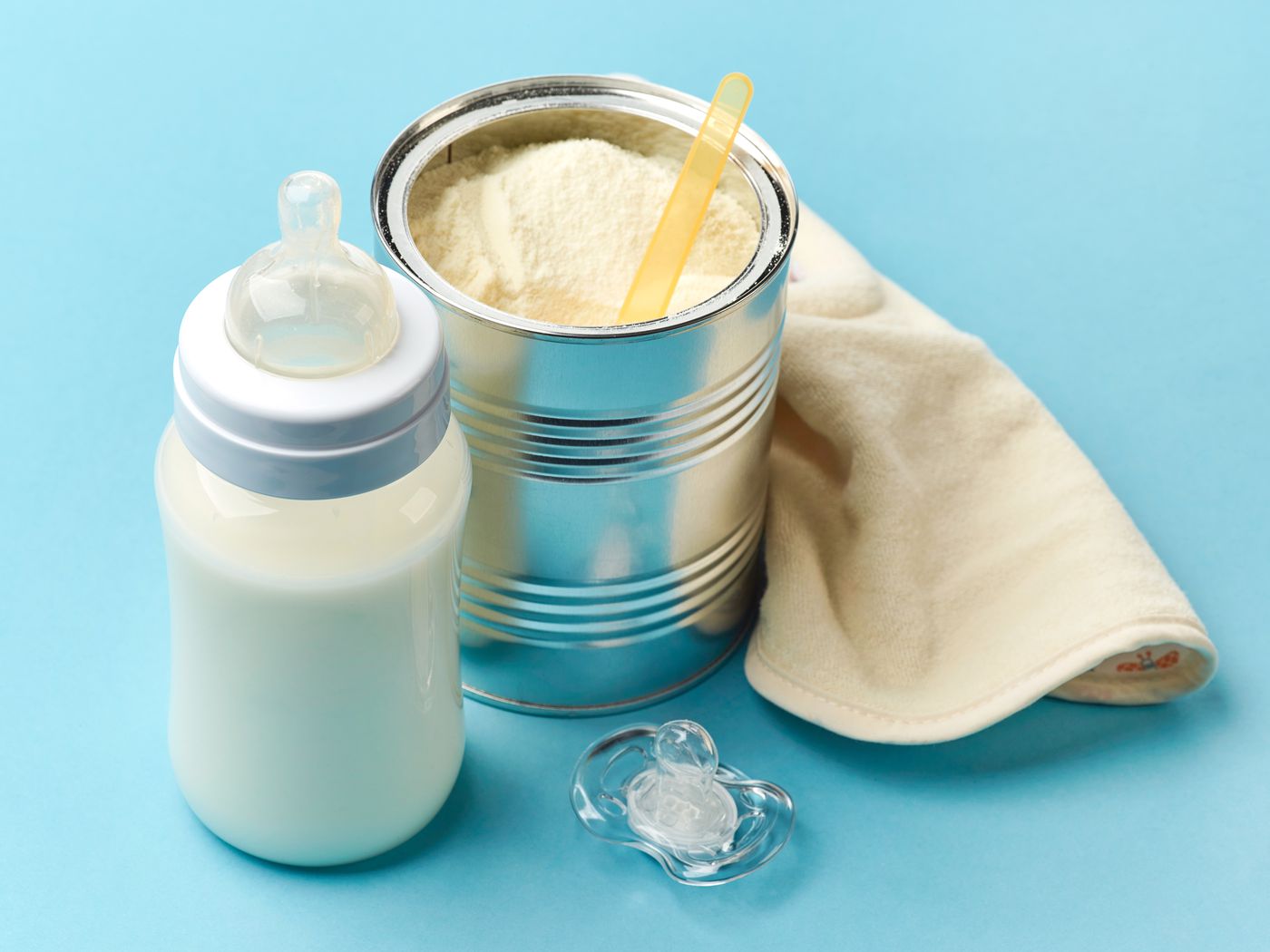When Does a Baby Stop Drinking Formula? A Guide for Parents

The transition from formula to whole milk is a significant milestone in your baby’s first year. Knowing when to make the switch and how to do it smoothly can set your child up for healthy eating habits. Let’s dive into the details of when and how to stop formula feeding.
The Ideal Time to Transition
For most healthy, full-term babies, the American Academy of Pediatrics (AAP) recommends introducing cow’s milk around their first birthday. This aligns with the time when they start eating a well-rounded diet of solid foods and need the extra nutrients that whole milk provides.
Can My Baby Switch to Milk Sooner?
While 12 months is the standard recommendation, there might be a few scenarios where your pediatrician suggests transitioning a bit earlier:
- Slow growth: If your baby isn’t gaining weight as expected, your doctor may recommend supplementing with whole milk.
- Iron deficiency: Whole milk can provide an additional source of iron if your baby has low levels.
- Formula intolerance: In rare cases, babies cannot tolerate formula and may need to switch to whole milk.
Important Note: Never introduce cow’s milk before your baby’s first birthday unless specifically advised by your pediatrician. Their digestive system isn’t fully developed before then.
Why Wait Until 12 Months?
Here’s why experts recommend waiting until your baby’s first birthday before offering cow’s milk:
- Digestion: Cow’s milk is harder for babies to digest than breast milk or formula.
- Nutrient balance: Formula and breast milk are perfectly tailored to a baby’s nutritional needs, which cow’s milk cannot fully replicate.
- Iron levels: Babies are born with an iron store, which starts to deplete around six months. Offering whole milk too early could displace iron-rich food sources.
How to Make the Transition
The switch from formula to whole milk should be gradual. Here are some tips:
- Start slowly: Begin by replacing one bottle or feeding a day with whole milk.
- Increase gradually: Over a week or two, gradually replace more formula feedings.
- Offer in a cup: While bottles are fine, this is a good time to introduce sippy cups or open cups.
- Mix it up (initially): You can try mixing a little whole milk with formula at first to ease the flavor transition.
What if My Baby Doesn’t Like Cow’s Milk?
Some babies may initially resist the taste of cow’s milk. Don’t worry, here are some ideas:
- Keep trying: Offer milk at different times of the day or with meals.
- Try different temperatures: Some babies may prefer it cold, while others like it slightly warmed.
- Flavor it (sparingly): If your pediatrician approves, you can try adding a tiny bit of vanilla extract or a touch of fruit puree for flavor.
- Don’t force it: If your baby refuses, continue offering formula and try milk again in a few days.
Other Milk Alternatives
If your baby has a milk allergy or you prefer a plant-based option, talk to your pediatrician about suitable alternatives:
- Soy milk: Choose a fortified variety to ensure adequate nutrition.
- Other plant-based milks: Consult your doctor, as these often lack the nutrients babies need.
- Lactose-free cow’s milk: Suitable if your baby is lactose intolerant.
Conclusion
For most babies, the transition from formula to whole milk around their first birthday is a smooth and natural step. By offering milk gradually and respecting your baby’s preferences, you’ll help them embrace this new and exciting part of their diet.
Important Reminder: Always consult your pediatrician before making significant changes to your baby’s diet, especially if they have any health concerns.
